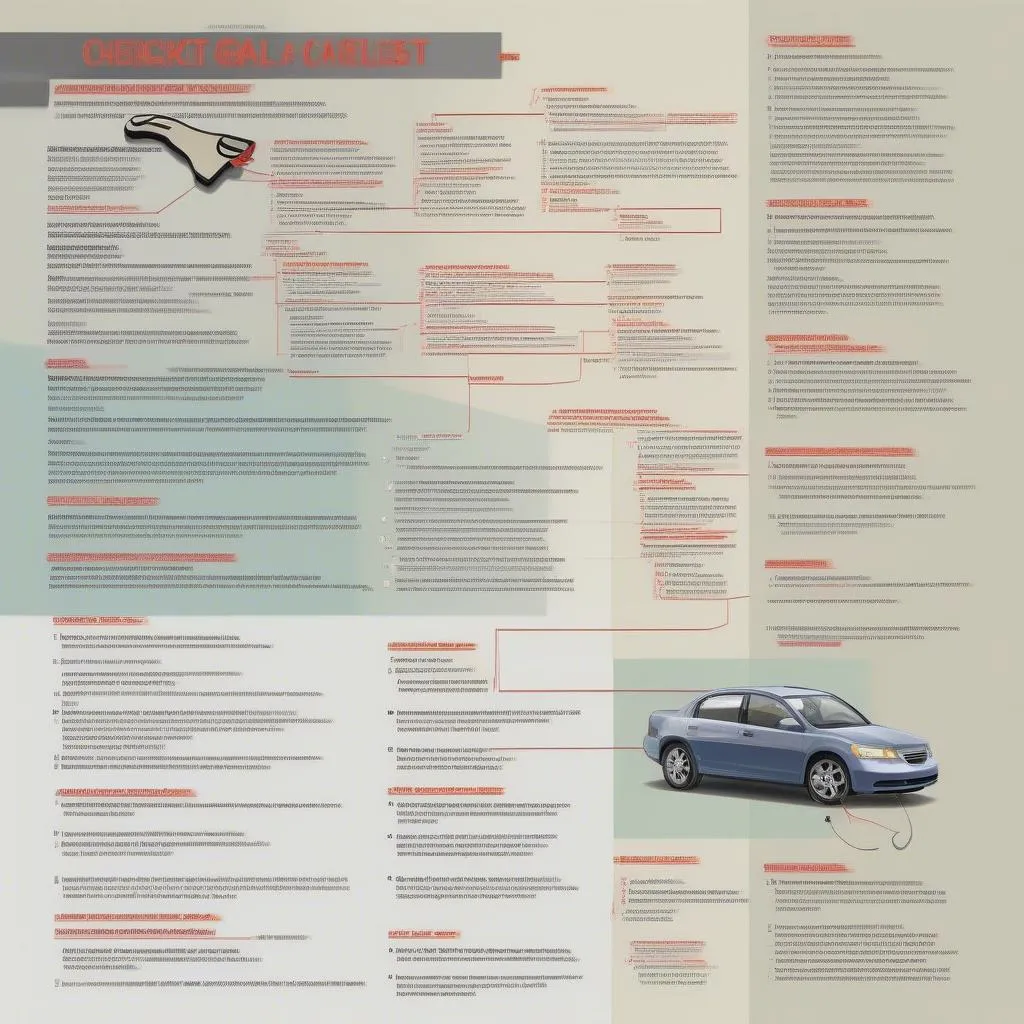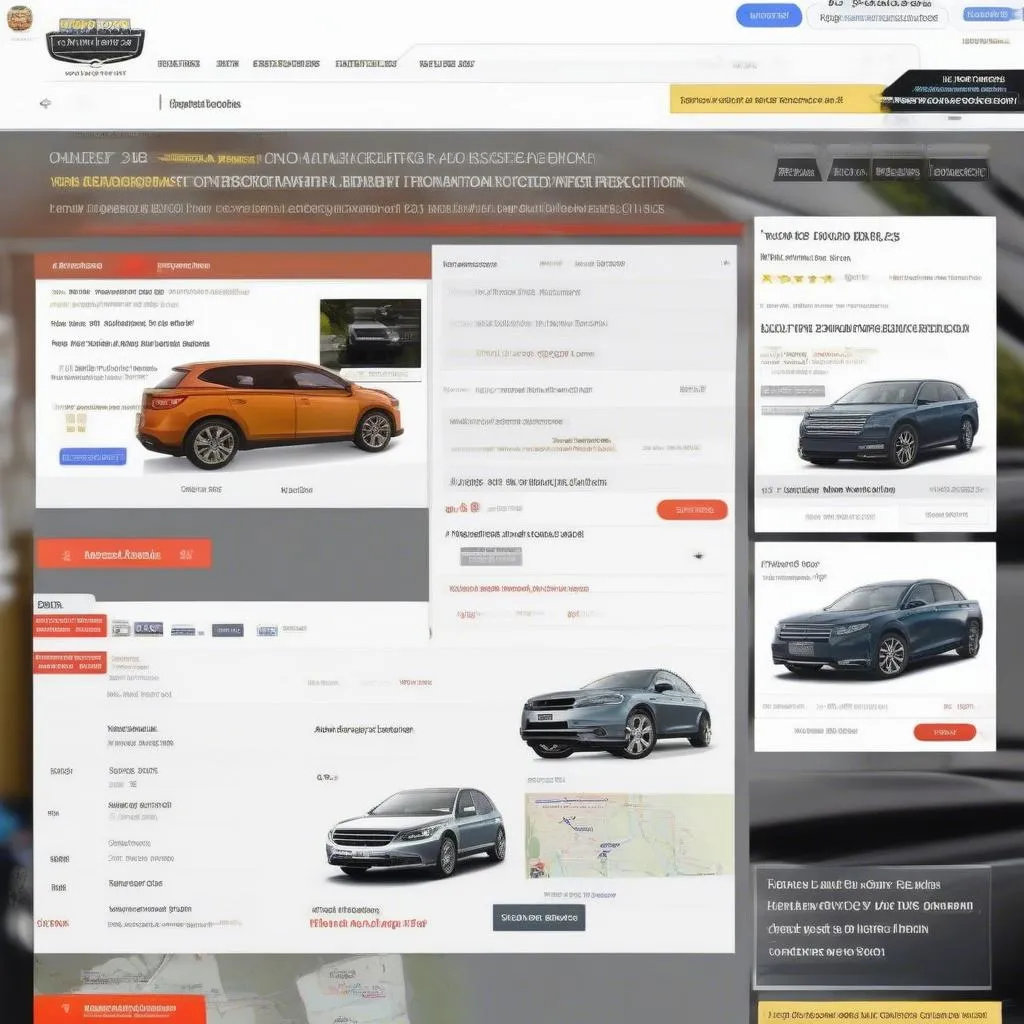Have you ever found yourself wondering about the best time to buy a used car? Is there a sweet spot for finding a great deal? Maybe you’ve thought about the role of car age, mileage, and even the time of year in determining the price of a used vehicle. This article dives into the world of used car prices, demystifying the factors that influence them and providing valuable insights for potential buyers.
Understanding the Factors Affecting Used Car Prices
Think of the used car market as a constantly shifting landscape, shaped by a complex interplay of factors. Understanding these factors empowers you to navigate the market and find a fair deal on your next used car.
The Impact of Supply and Demand
Just like any other product, used cars are subject to the forces of supply and demand. When supply is high and demand is low, prices tend to drop. Conversely, when demand outweighs supply, prices rise.
The Role of Market Trends
Used car prices can be influenced by broader economic trends, such as interest rates and fuel prices. A strong economy often leads to higher demand for used cars, while rising interest rates might make financing more expensive, impacting demand.
The Influence of Car Age and Mileage
The age and mileage of a used car play a pivotal role in its value. Newer cars with lower mileage typically command higher prices compared to older models with higher mileage.
The Significance of Condition
A used car’s condition can significantly impact its price. Vehicles in excellent condition with well-maintained components often fetch higher prices. Conversely, cars with damage or needing significant repairs are priced lower.
The Power of Make and Model
Certain car brands and models are more popular than others, impacting their resale value. Popular models with strong reputations for reliability and durability often retain their value better over time.
The Impact of Location
The geographic location where a used car is sold can also affect its price. Urban areas with a higher concentration of car buyers often see higher prices compared to more rural areas.
Finding the Right Used Car for You
Armed with an understanding of the factors influencing used car prices, you can embark on your search with confidence. Here are some essential steps:
Step 1: Define Your Needs
Determine your requirements based on your budget, lifestyle, and intended use. Do you need a car for daily commutes, long road trips, or transporting a large family? This will help narrow down your search to specific vehicle types.
Step 2: Research and Compare
Research different models within your budget and compare their features, reliability ratings, and resale value. Consider checking resources like KBB used car prices and Edmunds used car prices to get a realistic idea of market values.
Step 3: Inspect Thoroughly
Always schedule a comprehensive inspection of any used car you’re considering. Have a trusted mechanic examine the vehicle to identify any potential issues that might impact its price.
 Used Car Inspection Checklist
Used Car Inspection Checklist
Step 4: Negotiate Wisely
Don’t be afraid to negotiate the price of a used car. Research the market value of comparable models and be prepared to walk away if you’re not satisfied with the seller’s asking price.
Step 5: Get a Car History Report
Obtain a vehicle history report from resources like Carfax or AutoCheck to ensure there are no hidden problems or accidents in the vehicle’s past. This can give you valuable insight into the car’s history and overall condition.
Finding the Best Used Car Deals
While used car prices can be influenced by various factors, there are strategies to find great deals.
Time of Year
Buying used cars during the off-season months, typically during the winter, can often yield better deals. Dealerships are more likely to offer discounts to clear inventory and prepare for the upcoming spring and summer.
Private Sales
Consider exploring private sales, as you might encounter individuals looking to sell their used cars quickly and at lower prices than dealerships. However, it’s crucial to exercise caution and conduct thorough inspections.
Online Auction Sites
Online auction sites like eBay and Craigslist can offer competitive deals, but it’s important to proceed with caution and research the seller’s reputation.
 Online Car Auction Platform Screenshot
Online Car Auction Platform Screenshot
Common Questions About Used Car Prices
Here are some questions people often ask regarding used car prices:
How can I get a used car for a lower price?
- Negotiate: Don’t be afraid to negotiate with sellers, especially at private sales or dealerships with inventory to move.
- Consider Certified Pre-Owned (CPO): While a bit more expensive than standard used cars, CPO vehicles typically come with extended warranties and inspections, potentially saving you on future repairs.
- Buy Outside of Popular Demand: If you’re willing to be a little flexible on the exact make and model, you might find better deals on less popular vehicles.
- Shop During Off-Season: Dealers often offer discounts during slower periods, typically winter.
How much can I expect to pay for a used car?
- Start with Research: Resources like KBB used car prices, Edmunds used car prices, and online used car marketplaces can give you a general idea of prices based on make, model, year, mileage, and condition.
- Factor in Additional Costs: Remember to budget for taxes, registration, and any necessary repairs or maintenance.
What are some tips for buying a used car safely?
- Thorough Inspection: Have a trusted mechanic inspect the car for any potential issues.
- Car History Report: Request a Carfax or AutoCheck report to reveal any accidents, repairs, or odometer discrepancies.
- Test Drive: Take the car for a test drive under various conditions to check for any unusual sounds, vibrations, or handling issues.
What are some red flags to watch out for when buying a used car?
- Low Price That Seems Too Good to Be True: It might indicate hidden issues or undisclosed damage.
- Seller Unwilling to Allow Inspection: This could be a sign of trying to hide problems.
- Car Has Been Repainted: While not always a red flag, it could suggest the car has been in an accident or has previous damage.
Conclusion
Finding the perfect used car at the right price requires careful research, thorough inspection, and negotiation skills. By understanding the factors influencing used car prices and following the steps outlined above, you can navigate the used car market confidently and find a vehicle that meets your needs and budget. Remember, seeking advice from a trusted mechanic and utilizing resources like KBB used car prices and Edmunds used car prices can help you make an informed decision.


